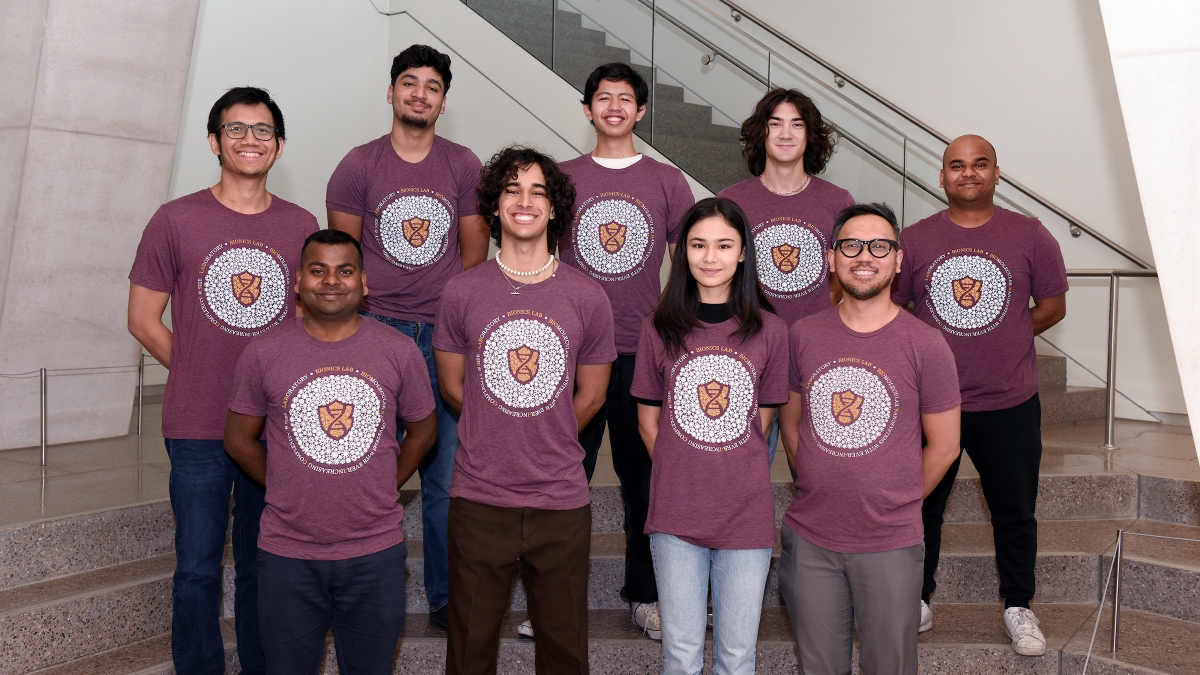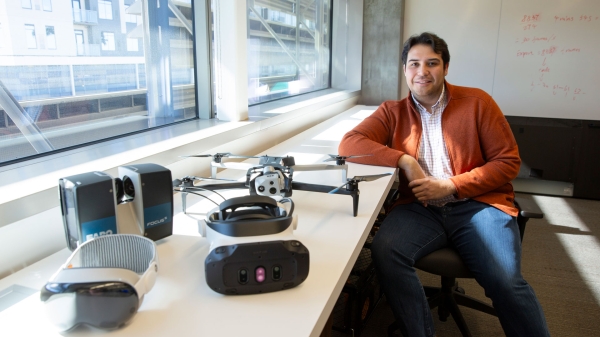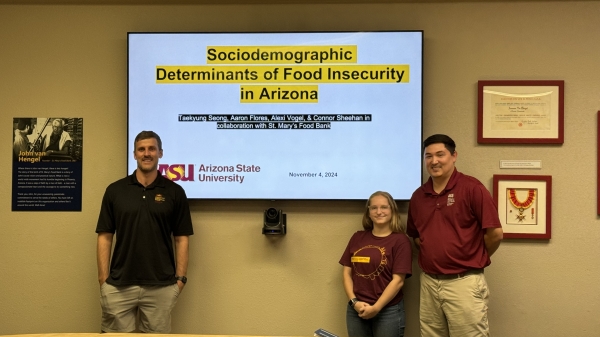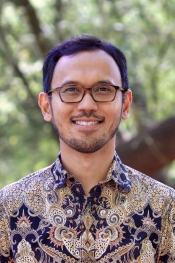NSF CAREER grant funds ASU physics professor’s research on integrin structure

Assistant Professor Rizal Hariadi (bottom row, far right) with students from his physics lab. Courtesy photo
Understanding integrins is essential for comprehending fundamental biological processes and various diseases, including cancer. For his innovative research on integrin structure under tension, Arizona State University Assistant Professor Rizal Hariadi has received a Faculty Early Career Development (CAREER) Award from the National Science Foundation.
The award will also help Hariadi to foster the next generation of scientists.
“This award involves not only research but education and outreach as well,” Hariadi said. “This is a way for me to help scale up research opportunities and promote science.”
The CAREER Award recognizes “early-career faculty who have the potential to serve as academic role models in research and education and to lead advances in the mission of their department or organization.”
As part of Hariadi’s proposal, the grant will cover two critical initiatives. The first is the study of integrin proteins, one of the primary receptor proteins that play an essential role in cell adhesion, migration and more.
Researchers can study the structure of integrins under tension and use their findings to understand the protein’s behavior. However, tension is difficult to produce.
“If we want to study tension, we can’t just pipet tension,” he said. “So we propose a way of studying biomolecules under tensions by pipetting reagents that will bind to the protein and then apply tension.”
At the center of Hariadi’s project is a low-cost, high-throughput piece of technology called the Multi-Axial Entropic Spring Tweezers along Rigid Origami (MAESTRO).
The MAESTRO provides a controlled mechanical environment to observe integrin structure and behavior. With MAESTRO, Hariadi can manipulate the mechanical forces experienced by the integrins and exert force in multiple directions.
“A lot of these proteins get activated by tension. We use a polymer, like a rubber band; if we stretch it, we will experience force,” he said. “If we continue to stretch out that polymer, the more force we will experience, and it will allow us to study the integrin’s structure and function under tension.”
Cancer cells have different mechanical properties than healthy cells, and understanding the integrin will help researchers regulate cell activity and potentially lead to controlling it, according to Hariadi.
The second purpose of the grant is to provide educational opportunities for students, particularly undergraduates, by increasing their access to research and advanced biophysics coursework through labs.
“We have found that many students have difficulty finding labs,” Hariadi said. “ASU has a large undergraduate population, and our challenge is scaling up and providing more research opportunities to undergraduate students.”
Hariadi has also partnered with artists to create engaging cartoons about science, to make complex scientific topics more accessible.
“Why the cartoons? First, because they are fun and science is fun,” he said. “I want to generate an environment where I mentor them, they are having fun, they are excited.
“We also need to recruit future scientists, and even by me just hanging this picture outside my lab, someone walks by, sees them and starts wondering about my lab. That is one way to recruit students who want to do this work.”
More Science and technology

Teaching construction realities with virtual environments
Visiting a construction site is a valuable learning opportunity for students who want to one day work in the industry. Experiencing the sights, sounds and other sensory elements of an active…
ASU, Mexico partner to build next generation of chipmakers, drive semiconductor innovation
Thousands of college students in Mexico will soon have the opportunity to enroll in Arizona State University’s new, free online course to learn the fundamentals of microelectronics and…

ASU, St. Mary’s Food Bank partner to tackle food insecurity in Arizona
Arizona State University and St. Mary’s Food Bank (SMFB) have joined forces to create an interactive data dashboard that tracks and maps food insecurity rates across Arizona. This innovative tool…

